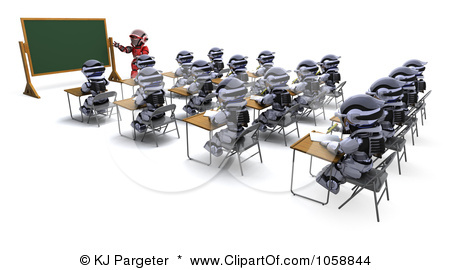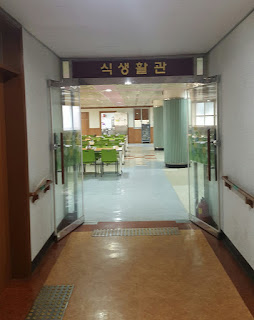Revolution or Evolution...
"Education is the practice of freedom." - Paulo Freire in Pedagogy of the Oppressed
 Since the publishing of Pedagogy of the Oppressed in 1970 how we, society teaches has continued to experiment with alternative approaches to education. The banking model is still very prevalent in schools (across the nation) my cohorts and I have observed, worked, and student-taught in. When information is deposited and stored until withdrawal is requested, usually for testing purposes, the process encourages the absence of critical thinking. The more students receive information, the less they develop the critical consciousness that results in intervention into the community as transformers of that community (1970). Freire goes further with his argument to highlight that classroom practices mirror society. The relationship between teacher and student is one-sided, liken to a dictatorship. The classroom remains a microcosm of society, which clearly demonstrates the treatment and education goals set for students depending on socioeconomic status. Financially struggling schools rarely have classes that include consist innovative, creative, and active learning opportunities. The educational goals of static instruction lead to social efficiency; train students to be compliant workers, not thinkers. One could argue for days about the factors and circumstances involved in oppressive education. Freire provides an A through J breakdown of what the banking model is, there are three points from which I would like to focus on. "Banking education maintains and even stimulates the contradictions through the following attitudes and practices, which mirror oppressive society as a whole:
Since the publishing of Pedagogy of the Oppressed in 1970 how we, society teaches has continued to experiment with alternative approaches to education. The banking model is still very prevalent in schools (across the nation) my cohorts and I have observed, worked, and student-taught in. When information is deposited and stored until withdrawal is requested, usually for testing purposes, the process encourages the absence of critical thinking. The more students receive information, the less they develop the critical consciousness that results in intervention into the community as transformers of that community (1970). Freire goes further with his argument to highlight that classroom practices mirror society. The relationship between teacher and student is one-sided, liken to a dictatorship. The classroom remains a microcosm of society, which clearly demonstrates the treatment and education goals set for students depending on socioeconomic status. Financially struggling schools rarely have classes that include consist innovative, creative, and active learning opportunities. The educational goals of static instruction lead to social efficiency; train students to be compliant workers, not thinkers. One could argue for days about the factors and circumstances involved in oppressive education. Freire provides an A through J breakdown of what the banking model is, there are three points from which I would like to focus on. "Banking education maintains and even stimulates the contradictions through the following attitudes and practices, which mirror oppressive society as a whole: (f) the teacher chooses and enforces his choice , and the students comply;
(h) the teacher chooses the program content, and the students (who were no consulted) adapt to it;
(j) the teacher is the Subject of the learning process, while the pupils are mere objects."
Most of us can recall teachers and classes that embodied the banking model. Our life experience was ignored and the notion that everyone in the class is simultaneously a teacher and learner. We left class as victims filled with information. Sadly, many teachers did not recognize their inhibition of students' creative power. Fortunately, Freire's idea of revolutionary teaching has been realized and has assisted the evolution of how teaching is taught. Temple's College of Education is preparing its future secondary education teachers for collaborative planning, teaching, and learning practices, which benefit students and teachers. Bloom's Taxonomy set a guideline from which educators should target for instruction and student learning. Couple the ordered process with Freire's With student choice exercised, collaborative learning methods are present in our classes, while we are learning how to incorporate collaboration (as teachers) in our future classes.
As several educators examine and refrain from passive educative practices, bell hooks (1998) looks to Freire in her article Engaged Pedagogy to communicate how teachers can be healers for victims of oppressive education. From Freire to hooks, the evolution of education approaches is continuous. Connecting philosopher Thich Nhat Hanh's union of mind, body, and spirit approach to learning is admirable. Many students have lived through terrible circumstances and unbelievable conditions, in and outside of academic environments. Education is a therapeutic tool to learn from those periods or incidents. Academic learning and personal growth act in unison, one cannot separate the other. Students should be able to connect and apply in-class experiences beyond the walls of a school building. Liberatory education practices are not favored by some; they do not recognize there can be a balance between teachers and students' roles in a classroom. Educators who are open to and expect students to respectively offer their perspective, questions, and misunderstandings provide opportunities for pupils to develop autonomy and esteem. Therefore, if one is continuously exposed to banking education, one fails to reach their enlightened self.
Through revolutionary approaches, Freire and hooks agree that self-actualization is the result. However, this is not an end result; the process is continual throughout every person's lifetime. hooks (1998) concentrates on helping students seek critical awareness through engagement, not confining "each pupil to a rote, assembly-line approach to learning" (68). Primary and secondary schools as well as higher education institutions (across the globe) are guilty of supporting the social efficiency style of learning that interrupts "conscientization". As a teacher, writer, and scholar hooks explains that learners need to be empowered through their educative experiences. Teachers have the responsibility to guide the process.




Comments